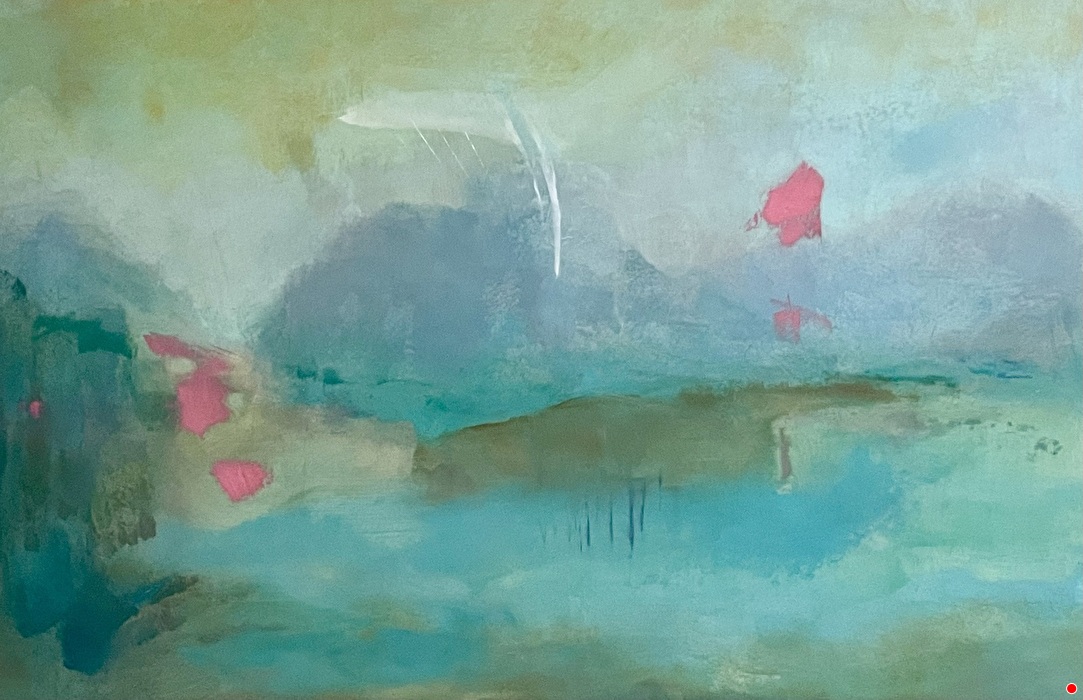We were lucky to catch up with Leslie Ihde recently and have shared our conversation below.
Hi Leslie, thanks for joining us today. What’s been the most meaningful project you’ve worked on?
My primary project has been the the inquiry into the parallels between creative inspiration and spiritual inspiration. As I have pursued this decades long exploration, the relationship between the two has become clearer and clearer. In fact, I no longer consider them separate, but many new lines of inquiry have manifested, like the paths of mountain streams descending from some skyline pool. I have worked to describe the steps of the creative process as I have experienced them. I then inquire into each of these steps as they have unfolded for me.
Here they are:
~ Hear the muse, clearly and with the mind of surrender. During this phase of your process you will try to shut out any other influence than the one that is calling you to create. You will not be concerned with what others think, what your market might be if you market your work, or any obligation to a style.
~ Step back and critique your work with your ordinary mind. This is your opportunity to look at your artwork as if you hadn’t created it. So you will be watching for values and composition and so on.
~ Return to unity with creation again, listening and doing. Here you want to cultivate an un separateness from your process. You want to be merged in the-I would say song of painting, or music, or writing; listening (to inspiration) and doing.
~ Critique again. You will repeat this process as many times as necessary until you feel a sense of completion.
~ Your work will now be as clear as possible to you. Consider if you will share the work and in what form. Bring back your awareness of others. You will reflect on the minds of your audience and decide what you want to share. In this phase, also, you will enter contemplation and alternate with your more ordinary mind with a view to the consequences that may result from sharing your work. You will be reflecting on what you have said with your work, or rather, what has been gifted to you, and what effect it is likely to have as you set it free.
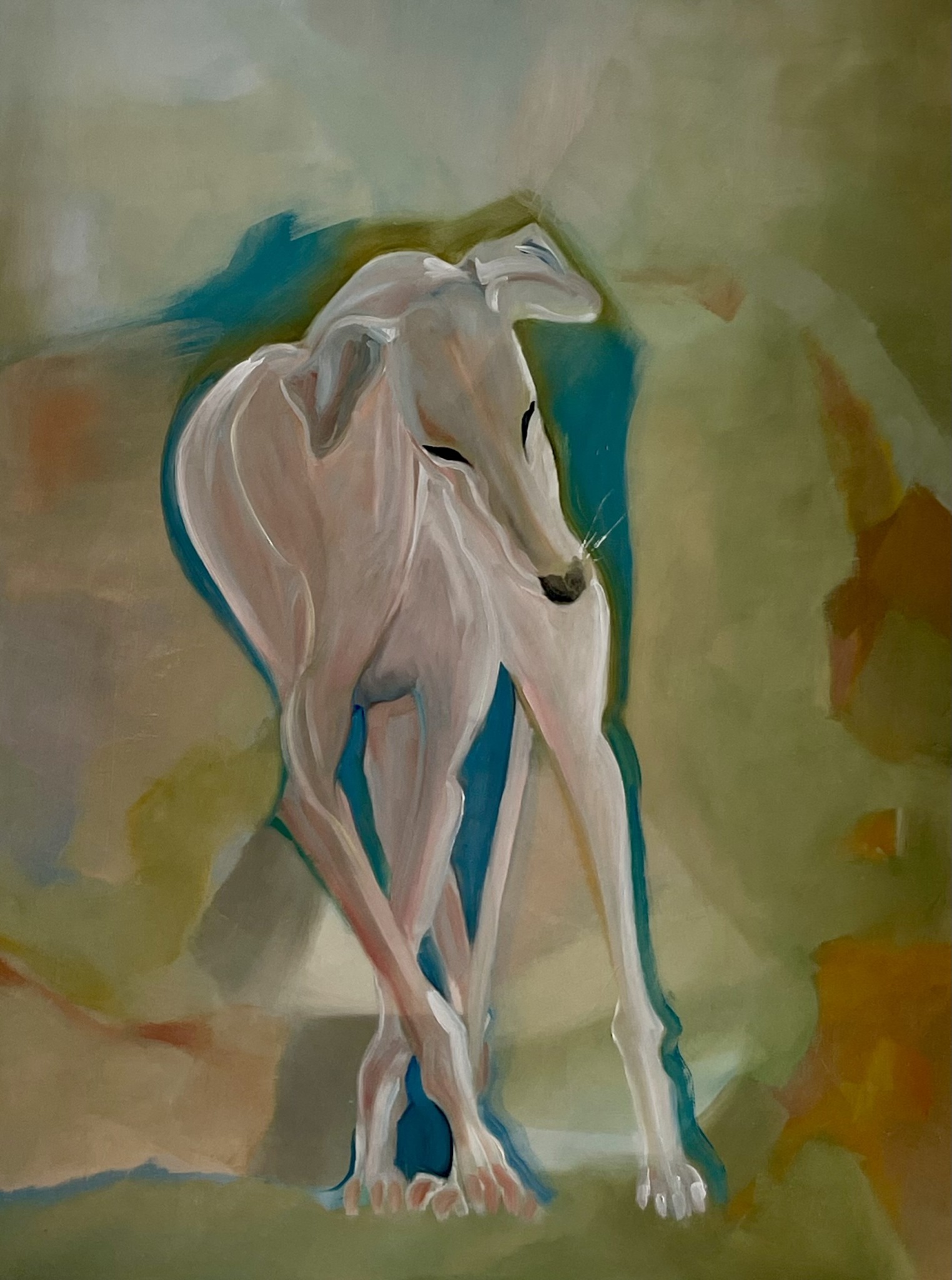
Leslie, before we move on to more of these sorts of questions, can you take some time to bring our readers up to speed on you and what you do?
My “day job” is being a psychotherapist. There can be a heaviness to this work since its starting point is the person’s dissatisfaction or unhappiness. Since the beginning of my career as a therapist, I have also been an artist. The bringing together of these two interests was a natural and evolving process. Early on (now decades ago) I began working with my clients in creative groups. I now run an “Art Sangha” which is a group designed to support creativity and cull the insights that emerge in the process.
It became apparent to me that a person’s joy, or sense of beauty is just as effective an entrance into psychological challenges as unhappiness. So I began to develop a way of using creative forms to help a person articulate the essence of their conflict.
One of the most effect methods I worked with was to combine writing tanka poetry with therapy. Tanka is an ancient Japanese form, similar to haiku, but with 5 lines and a more personal emphasis. I will give you an example of one of mine.
call me flash
my brother said
zooming past me at 5
on the phone he tell me
that his wife left him
The reason tanka writing was so effective in my groups was that in the effort to pare down experience to five lines, the writer (in this case my client) needed to reflect on their experience and make it essential. The same process is used in psychotherapy-the talks lead to essential clarity allowing the individual to take control of their decision making.
My background includes degrees in creative writing and clinical social work. I am now in private practice and spend my free time painting. You can fine my work at leslieihde.com.
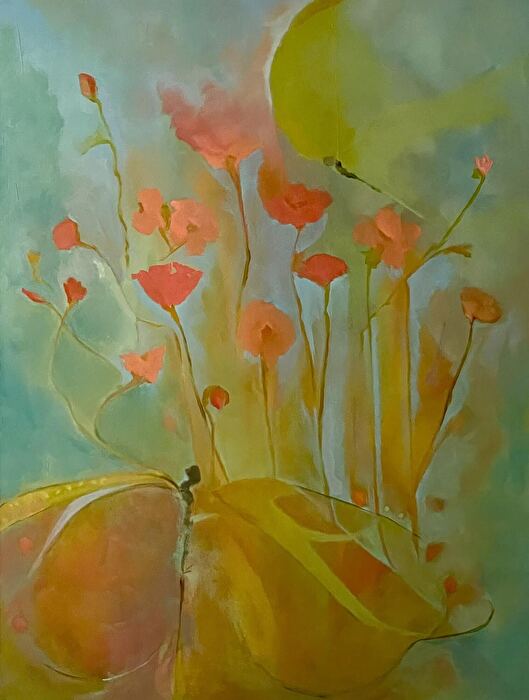
Is there something you think non-creatives will struggle to understand about your journey as a creative? Maybe you can provide some insight – you never know who might benefit from the enlightenment.
I work with creativity and creatives, but I want to reach out to those who don’t consider themselves artists. I believe that we are all creatives even when we don’t have a creative practice. The reason I think this is because when you truly examine the creative act with deep attention, you will notice that ideas simply come. The work is to manifest them. I can show you how this happens even when you are not an artist.
One way is in noticing moments that grip you, or threads of conversations that stick in your head. Even misreading a sign might be an entrance into inquiry. When you are gripped by a remark, examine what that remark means to you. Does it make you angry or sad? Does it seem true? If it doesn’t seem true, why do you think that you are carrying it around? Does it come from your own dark voice or does it echo some secret self-criticism you have? Inquire and see what unfolds.
In art this process happens frequently, but it is not different in kind from the noticings that happen to us all. I was once fascinated by orchids. I began making orchid pots from clay. For several months I fantasized about the ways my vessels could allow the orchid tendrils to twine and the flowers to bloom. I duplicated rough nooks in trees, where orchids often live, and used my clay to set the stage for the flowers. My pots were humble, only brought to life by the plants.
I finally realized that I was an orchid. Growing in nearly nothing, drawing nutrients and water from the air, I, too, was a foundling of sorts trying to bloom. It was completely unnecessary to actually make the pots, but doing so became a kind of contemplation. All that is needed is curiosity and observation of one’s inner rambles of thought. This is the creativity that is everyone’s birthright.
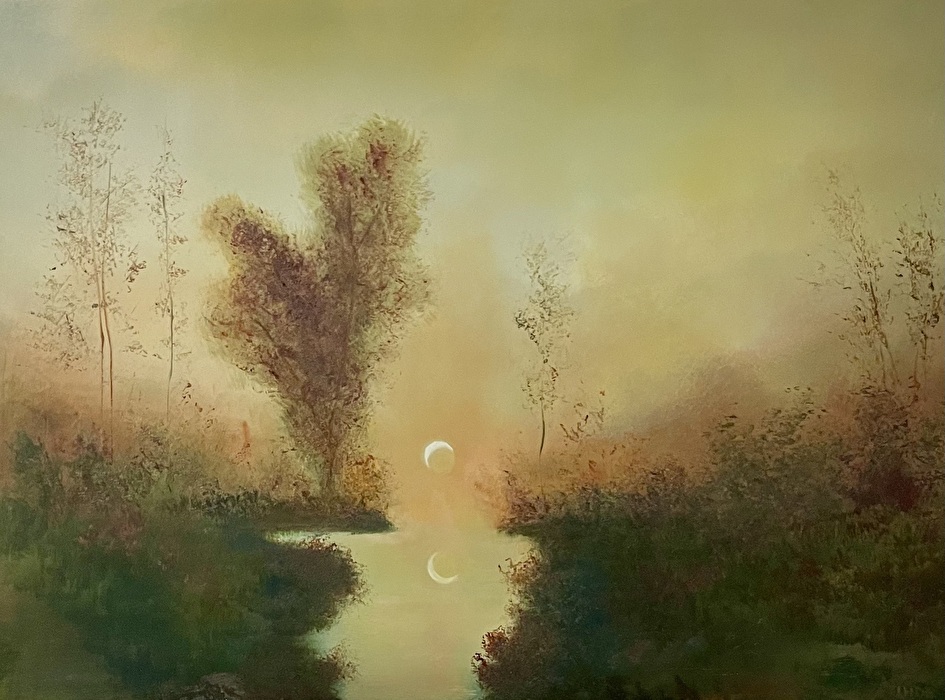
In your view, what can society to do to best support artists, creatives and a thriving creative ecosystem?
I think that the work of an artist is to bring to voice perception. I am not fond of the idiosyncratic in art; something is not art simply because it is unique. True art brings essence into view. The obligation of the one who receives insight is to bring his life to the level of the insight through practice. The obligation of the artist is to create the art. Here’s the thing-both insight and artistic inspiration come with demands. The one gifted with either has to bring the idea to fulfillment or they will fail to be the adequate vehicle for the gift.
In our society, art is often linked to charity. Artists are asked to contribute work for charitable events in exchange for “exposure”. Artist grants are often offered to the disadvantaged who are in need. As if being an artist is to be poor, and artists the mendicants of our modern world.
I think that instead society should honor artists as the ones who do the work to bring forth the voices of culture, of the unconscious, of the conflicts inherent in society. There should be a way that this function is recognized. Art should be rewarded, not just by purchase prices, but as a function needed by all. We benefit from the voices that clarify our common experience. Some countries support their artists with stipends or tax breaks.
If you would like to learn more about my work, I invite you to subscribe to my newsletter on substack, Inner Art – Mysticism and the Creative Process.
Contact Info:
- Website: https://www.leslieihde.com/
- Instagram: https://www.instagram.com/leslieihdefineart/
- Other: https://www.spiritualself-inquiry.com/
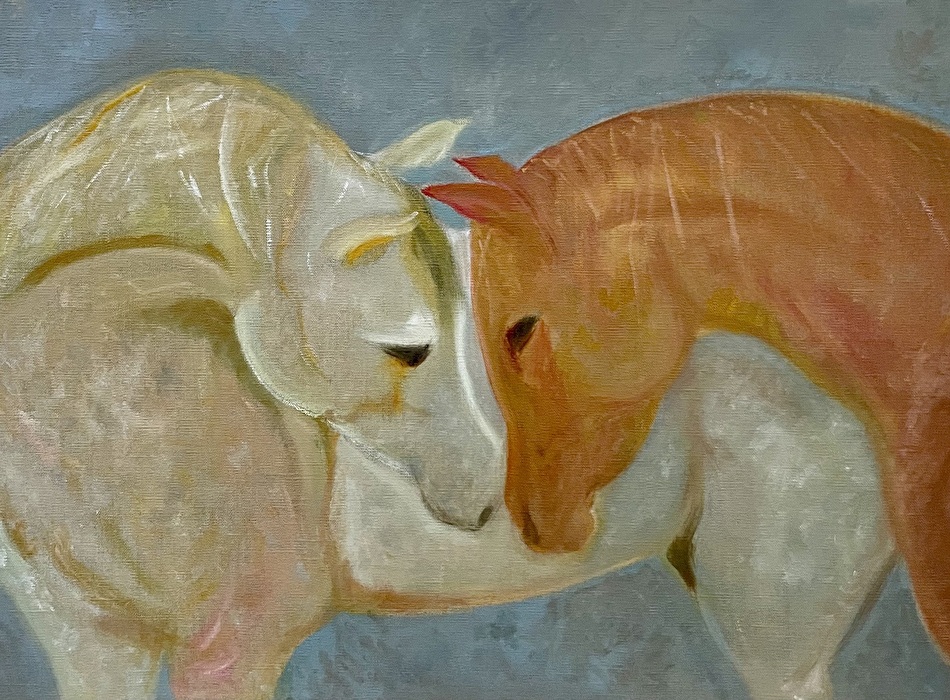
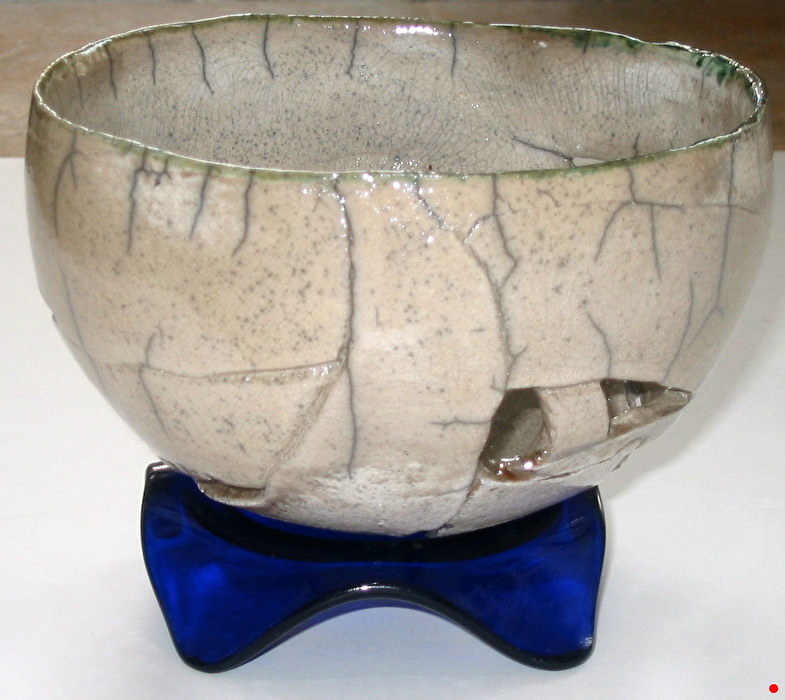
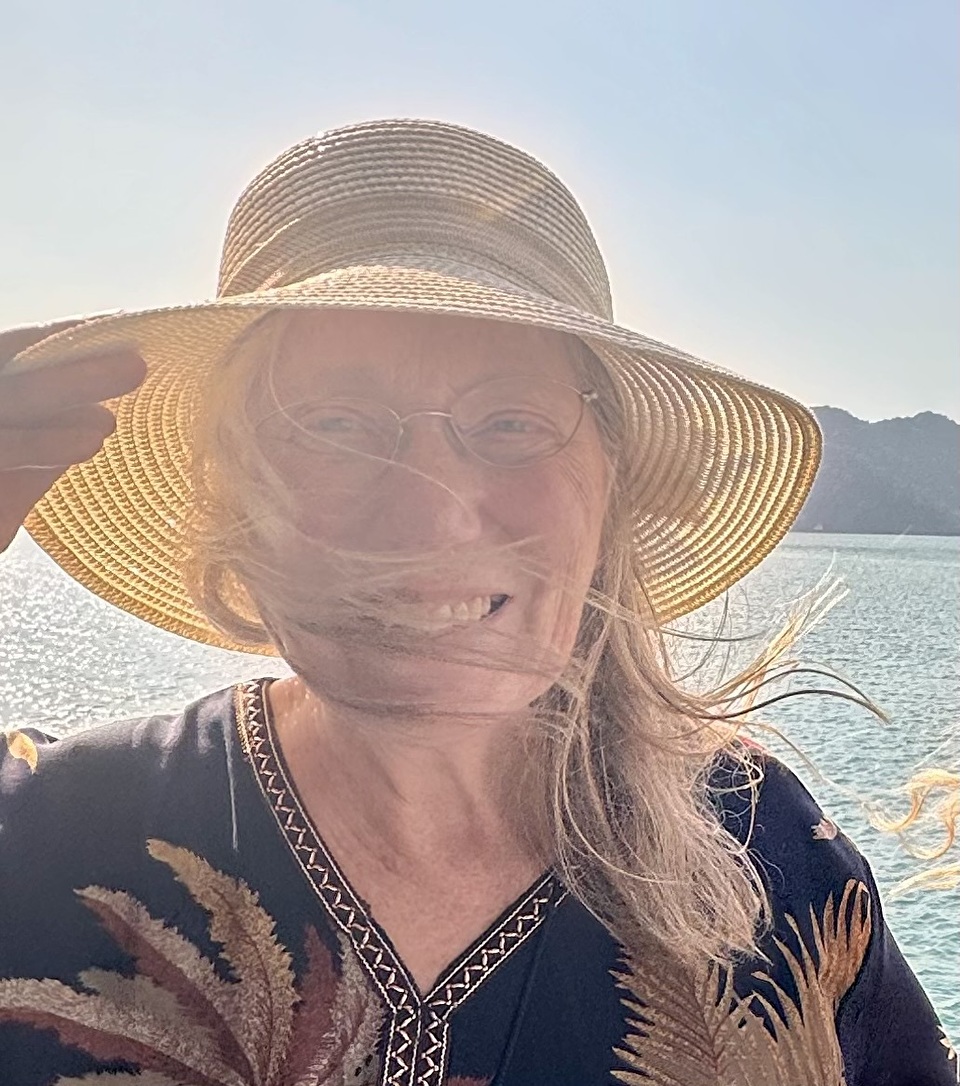
Image Credits
Leslie Ihde
portrait of me by Eric Ihde


